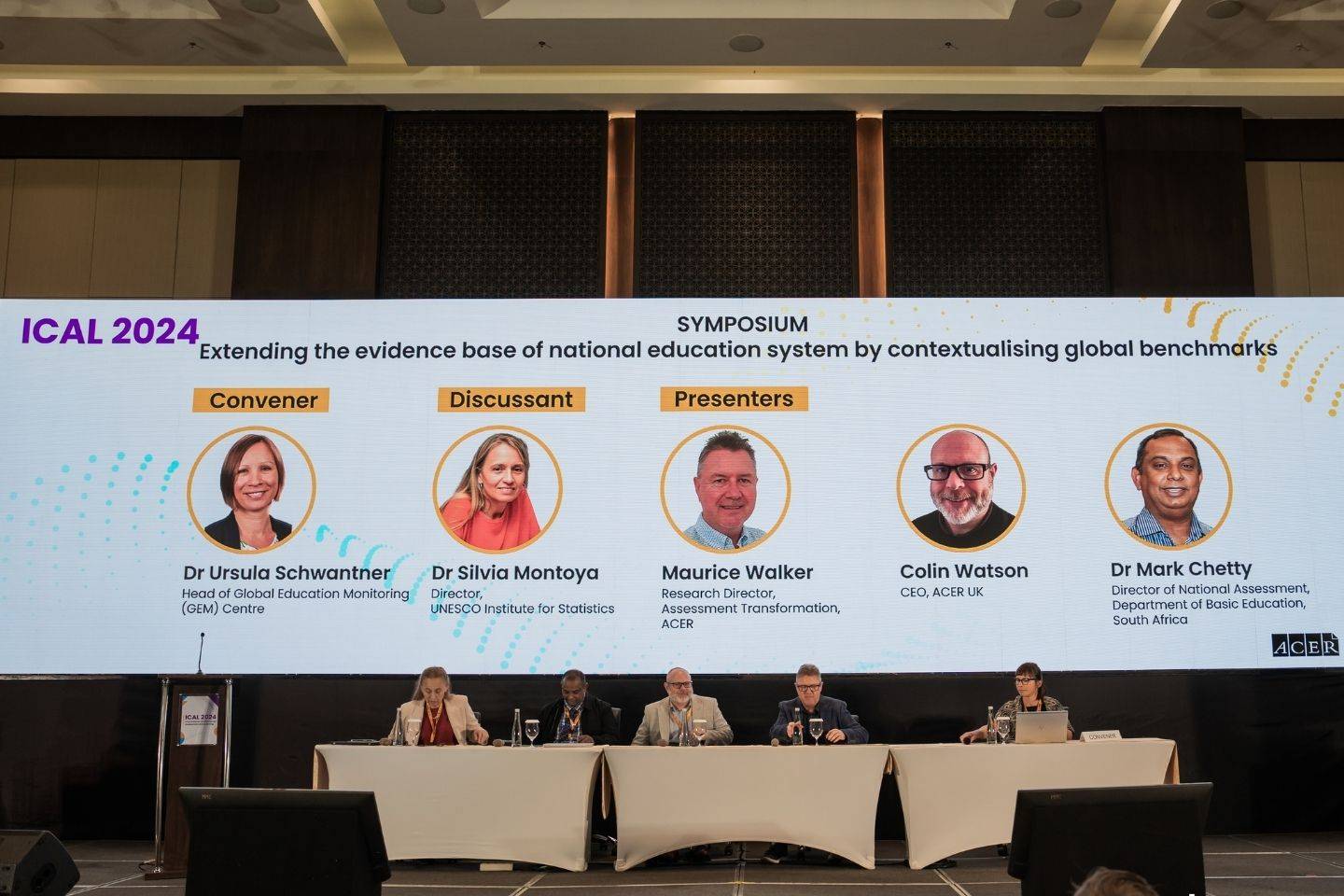
Enhancing education monitoring
10 Dec 2024 4 minute readThe GEM Centre recently hosted a symposium, exploring methods to align national education systems with global SDG 4 benchmarks for more effective monitoring and progress tracking.
Chaired by Dr Ursula Schwantner, Head of the Global Education Monitoring (GEM) Centre at ACER, this symposium at ACER Indonesia’s International Conference on Assessment and Learning (ICAL) explored ways to align national education systems with global benchmarks under United Nations Sustainable Development Goal (SDG) 4 – quality education for all.
Made possible by partnerships established through the GEM Centre, the session featured key speakers, including Dr Silvia Montoya from UNESCO’s Institute for Statistics (UIS), Maurice Walker and Colin Watson from ACER, and Dr Mark Chetty from the Department of Basic Education of South Africa.
Since the introduction of SDG 4 there has been considerable international efforts to develop methods to enable countries to monitor progress, supported by the Global Alliance to Monitor Learning hosted by UIS. This includes the development of global proficiency frameworks for reading and mathematics and defining Minimum Proficiency Levels in reading and mathematics as global benchmarks. ACER and UIS collaborate to develop ways that these benchmarks can be applied objectively to contextualised national, regional and out-of-school assessments.
The symposium showcased 3 methods that governments, assessment agencies or civil society organisations can use to contextualise the global benchmarks of SDG 4 for enhanced education system monitoring. The discussion focused on the gap between global education benchmarks and local assessments, particularly in low- and middle-income countries.
Mr Walker discussed how tools for public good can be used together with local assessments to determine global benchmarks, while enhancing local capacity in assessment and psychometric methods. Mr Watson presented the Pairwise Comparison Method, a cost-effective way to align national assessments with global proficiency levels without the need for additional data collection. Dr Chetty shared insights from South Africa's approach, potentially using national assessments to report on SDG 4 progress and incorporating these results into broader educational planning. Dr Montoya emphasised the need to fill gaps in reporting against the SDGs and highlighted developments that support countries to report against the SDGs using their national assessments.
The discussions underscored the importance of building local capacity in education monitoring and developing systems that balance global standards with national context. By bridging these gaps, countries can better assess their progress toward achieving SDG 4 education goals.
Further information
Watch the full symposium, Extending evidence base of national education system by contextualising global benchmarks.
Read our feature, Quality education for all: enabling countries to monitor progress towards achieving SDG 4.